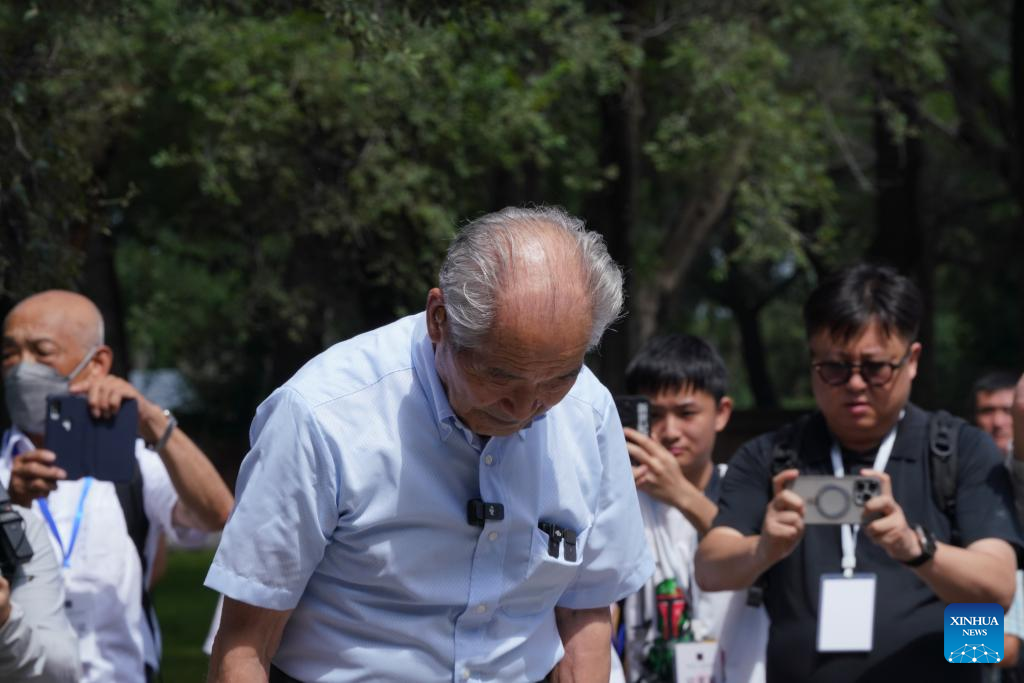
Hideo Shimizu offers apology in front of an apology and anti-war monument at the former site of Unit 731 in Harbin, northeast China's Heilongjiang Province, Aug. 13, 2024. Shimizu, a former member of Unit 731, the notorious Japanese germ-warfare detachment during World War II, identified the crimes of the Japanese army on Tuesday at the site where he served 79 years ago in China. Shimizu, 94, was among the last batch of Unit 731 Youth Corps members sent by Japan to Harbin, China, where he spent more than four months witnessing the war crimes committed by the unit, including the cultivation of pathogens, human dissections and human experiments. He fled China with the retreating Japanese forces on August 14, 1945. This visit is Shimizu's first return to Chinese soil in 79 years. (Xinhua/Wang Song)
HARBIN, Aug. 13 (Xinhua) -- After a 79-year hiatus, Hideo Shimizu, a former member of Unit 731, the notorious Japanese germ-warfare detachment during World War II, returned to China to acknowledge the atrocities committed by the invading Japanese forces and to offer sincere repentance and apologies to the victims.
His itinerary included a poignant visit to the former headquarters of Unit 731 and the Exhibition Hall of Evidences of Crime Committed by Unit 731 of the Japanese Imperial Army, both located in the northeastern Chinese city of Harbin, where he grappled with the stark and haunting evidence of the unit's inhumane deeds.
Shimizu, 94, arrived by plane in Harbin, Heilongjiang Province, on Monday evening and visited the former site of Unit 731's headquarters building, including the office of the unit commander, the specimen room, and the site of the frostbite laboratory, on Tuesday morning.
He recalled that in the specimen room, he had seen a variety of dissected human organs soaked in formalin-filled bottles, and he had been ordered to collect the bones of prisoners who were used as experimental subjects.
Shimizu was among the last batch of Unit 731 Youth Corps members sent by Japan to Harbin, where he spent more than four months witnessing the war crimes committed by the unit, including the cultivation of pathogens, human dissections and human experiments. He fled China with the retreating Japanese forces on August 14, 1945.
In 2016, Shimizu revealed his identity as a former Unit 731 member and began to expose the atrocities of the Japanese Imperial Army through public speeches and interviews, aiming to tell historical truths.
This visit is Shimizu's first return to Chinese soil in 79 years. He had previously expressed a strong desire to return to China to pray for the deceased and apologize to their families. The trip was made possible by donations from various Japanese civilian groups.
"For me, overcoming many difficulties to return to China is about hoping that the Japanese authorities can face history squarely, safeguard peace, and not repeat the mistakes of war," Shimizu said.
At the site of the Unit 731 headquarters, he repented and apologized in front of the monument to "apology and the commitment to peace without war."
The monument was built with funding from various Japanese civilian groups in 2011. With black background and white characters, the inscription on the monument reads: "The Japanese Army's Unit 731 committed unprecedented national crimes in world history in China."
This trip to Harbin is also his first time traveling abroad after the war. Standing in front of the monument, Shimizu put his palms together and bowed deeply. "I sincerely apologize and repent to the victims in China," he said.
On Tuesday afternoon, Shimizu visited the Exhibition Hall of Evidences of Crime Committed by Unit 731 of the Japanese Imperial Army.
Unit 731 was a top-secret biological and chemical warfare research base established in Harbin as the nerve center for Japanese biological warfare in China and Southeast Asia during World War II. At least 3,000 people were used in human experiments by Unit 731, while more than 300,000 people in China were killed by Japan's biological weapons.
In 2015, the exhibition hall was built, resembling a "black box," which preserves and displays archives, relics and physical evidence of the Japanese invasion of China. Its exhibits include the evidences obtained by Chinese experts such as the curator Jin Chengmin through more than 20 years of international investigation.
"Indeed, Japan has inflicted acts of cruelty, and the truth stands unaltered. Confronting history and yearning for peace constitute the most profound lesson we must embrace," Shimizu said. ■
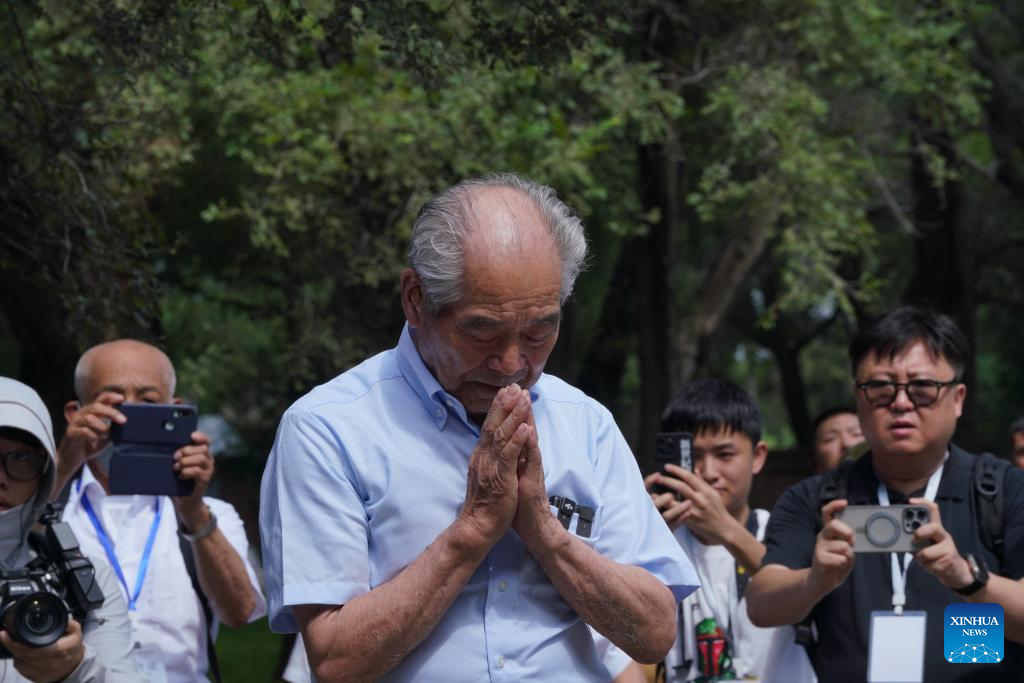
Hideo Shimizu offers apology in front of an apology and anti-war monument at the former site of Unit 731 in Harbin, northeast China's Heilongjiang Province, Aug. 13, 2024. (Xinhua/Wang Song)
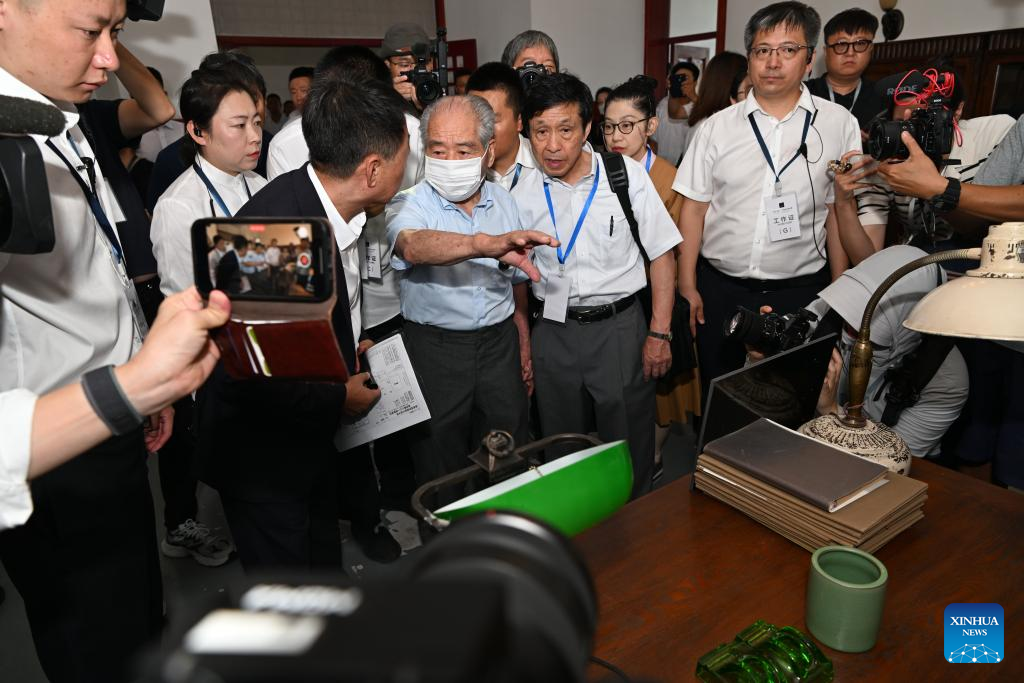
Hideo Shimizu identifies the crimes of the Japanese germ-warfare at the former site of Unit 731 in Harbin, northeast China's Heilongjiang Province, Aug. 13, 2024. (Xinhua/Wang Song)
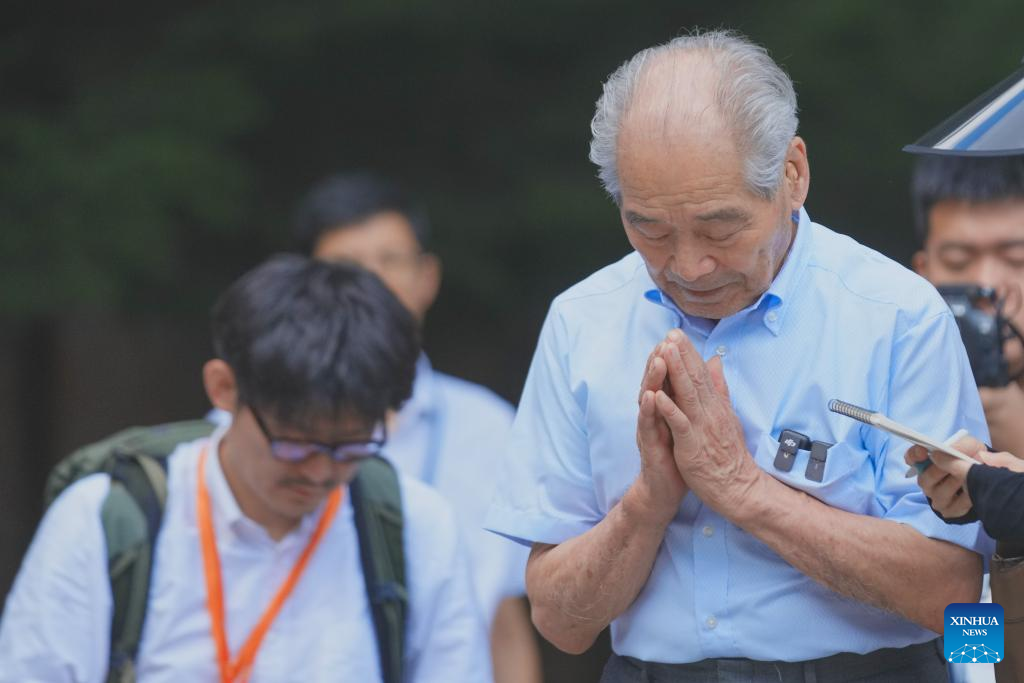
Hideo Shimizu offers apology in front of an apology and anti-war monument at the former site of Unit 731 in Harbin, northeast China's Heilongjiang Province, Aug. 13, 2024. (Xinhua/Wang Jianwei)
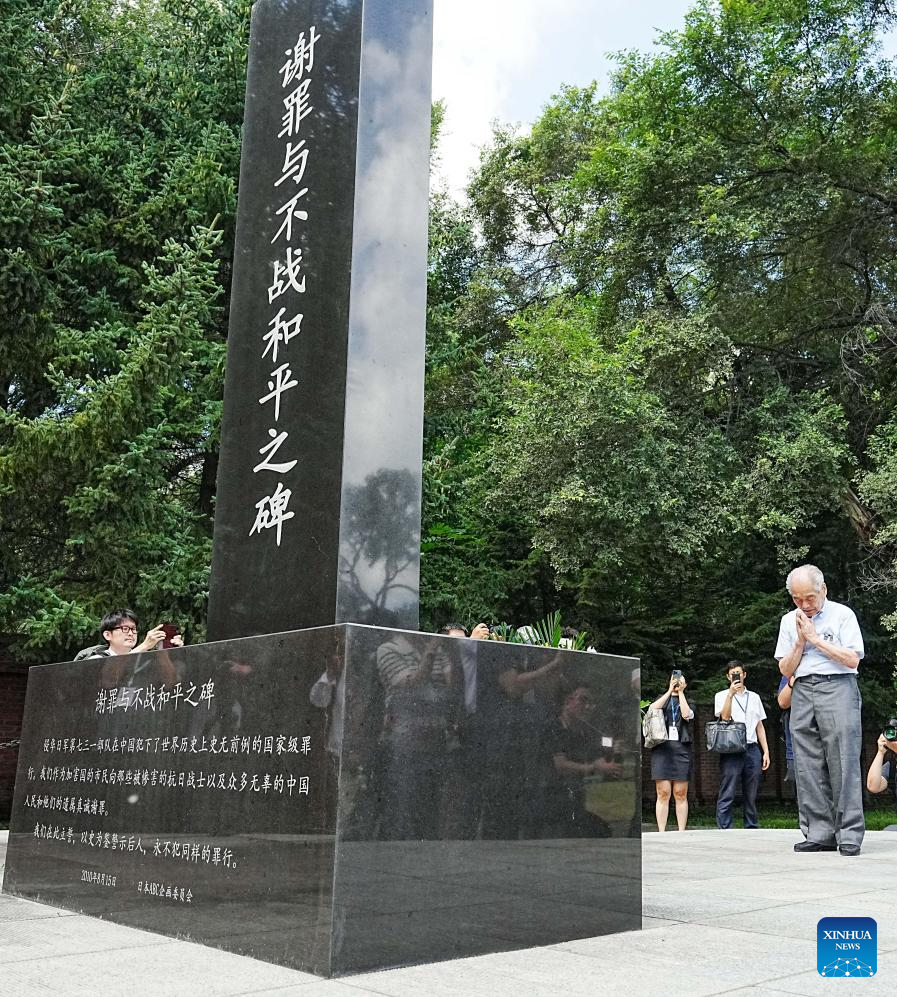
Hideo Shimizu offers apology in front of an apology and anti-war monument at the former site of Unit 731 in Harbin, northeast China's Heilongjiang Province, Aug. 13, 2024. (Xinhua/Wang Jianwei)
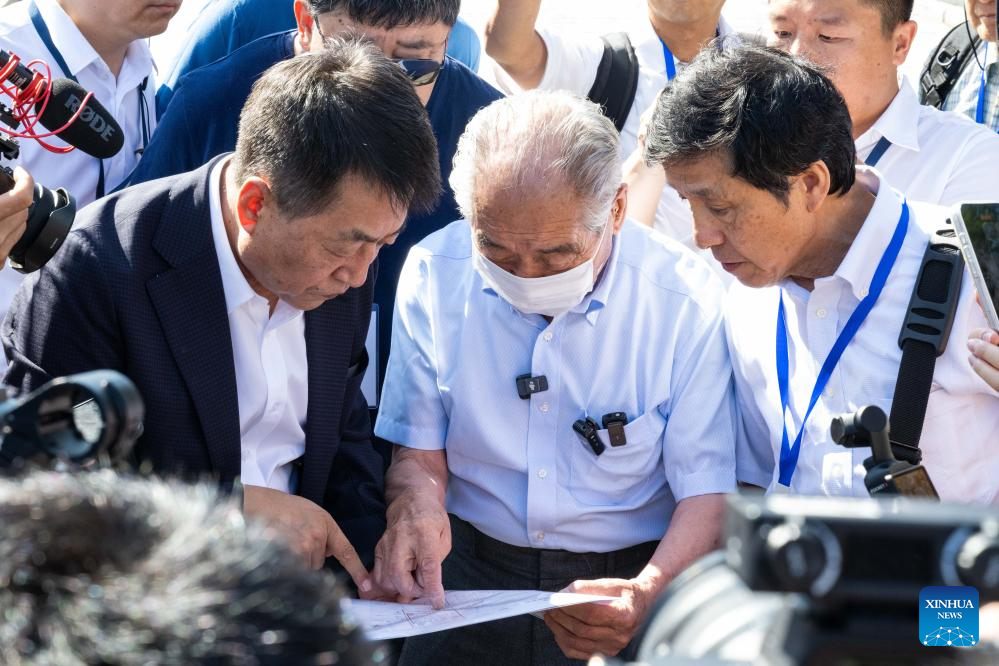
Hideo Shimizu (2nd R, front) identifies the crimes of the Japanese germ-warfare at the former site of Unit 731 in Harbin, northeast China's Heilongjiang Province, Aug. 13, 2024. (Xinhua/Xie Jianfei)
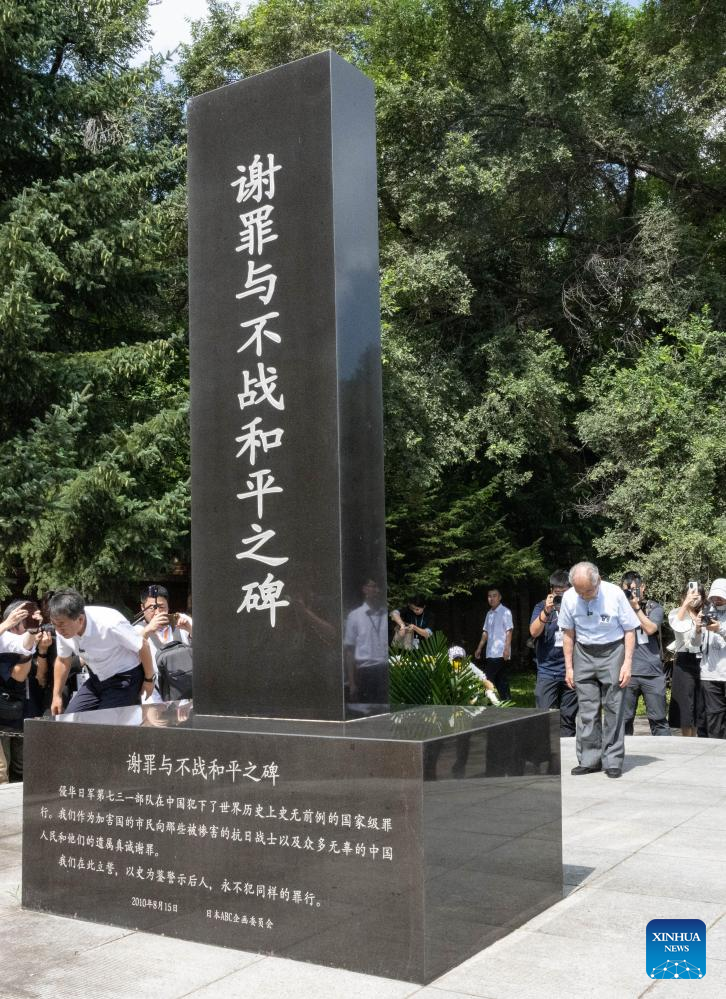
Hideo Shimizu offers apology in front of an apology and anti-war monument at the former site of Unit 731 in Harbin, northeast China's Heilongjiang Province, Aug. 13, 2024. (Xinhua/Xie Jianfei)
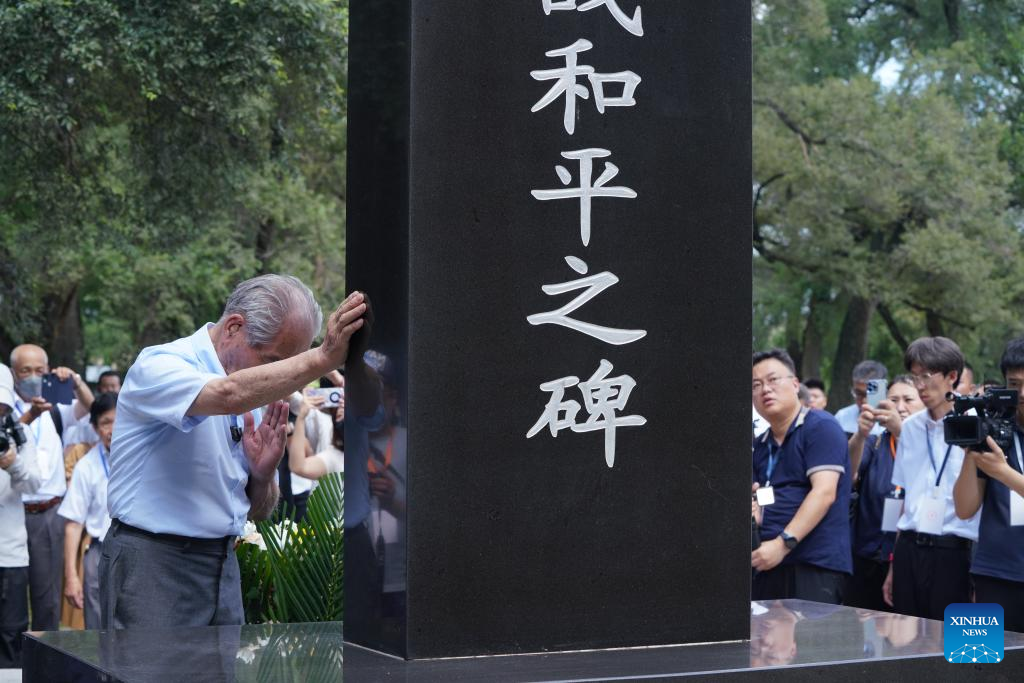
Hideo Shimizu offers apology in front of an apology and anti-war monument at the former site of Unit 731 in Harbin, northeast China's Heilongjiang Province, Aug. 13, 2024. (Xinhua/Wang Song)
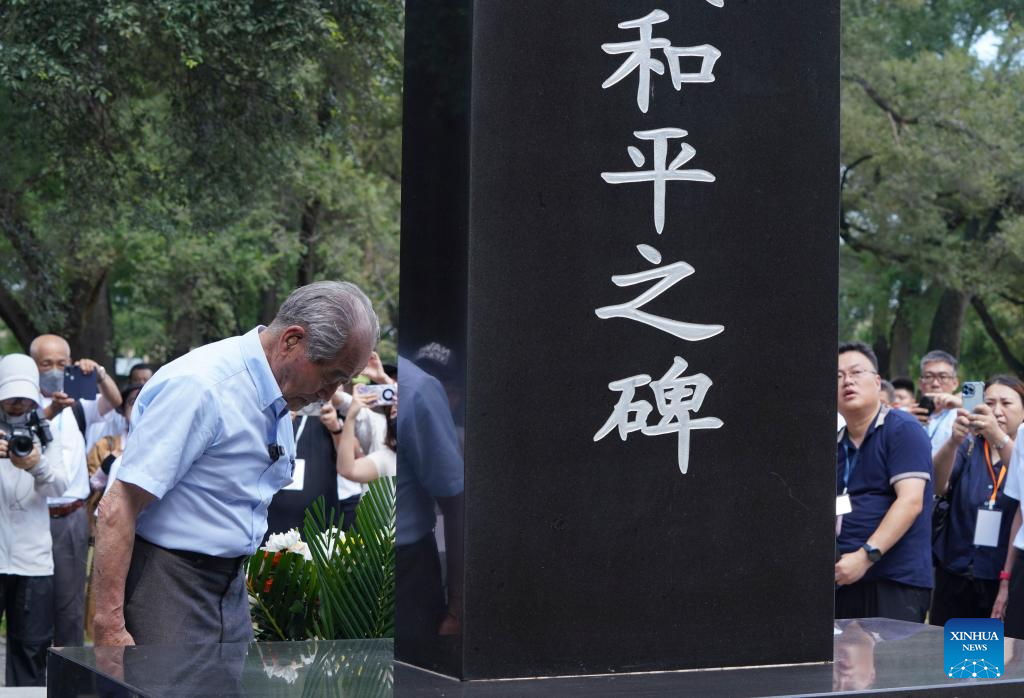
Hideo Shimizu (L) offers apology in front of an apology and anti-war monument at the former site of Unit 731 in Harbin, northeast China's Heilongjiang Province, Aug. 13, 2024. (Xinhua/Wang Song)
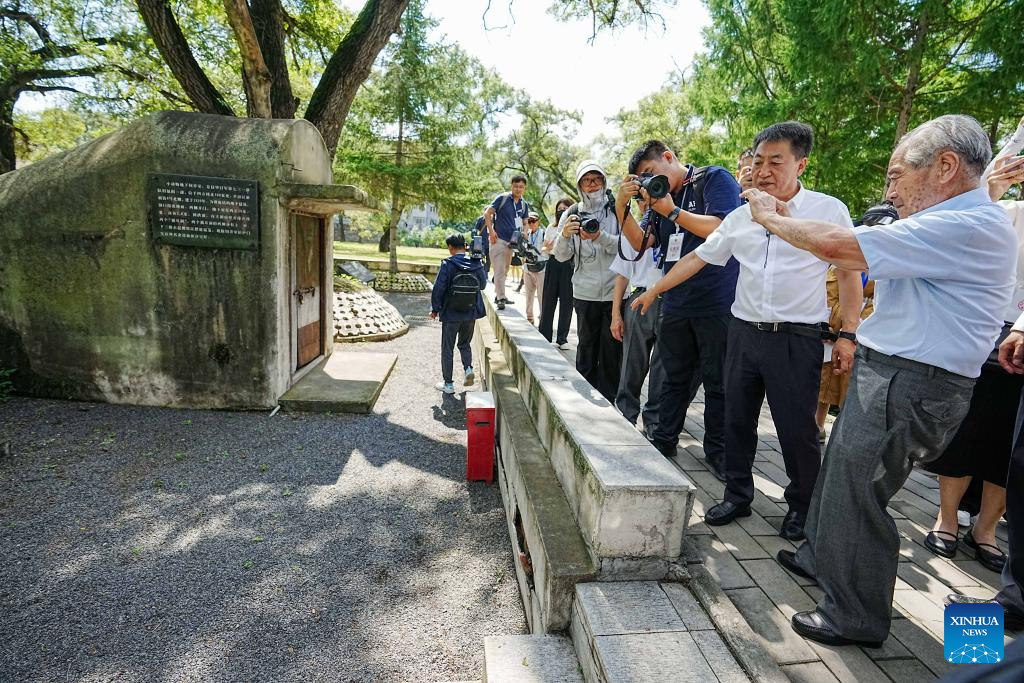
Hideo Shimizu (1st R) takes pictures at the former site of Unit 731 in Harbin, northeast China's Heilongjiang Province, Aug. 13, 2024. (Xinhua/Wang Jianwei)
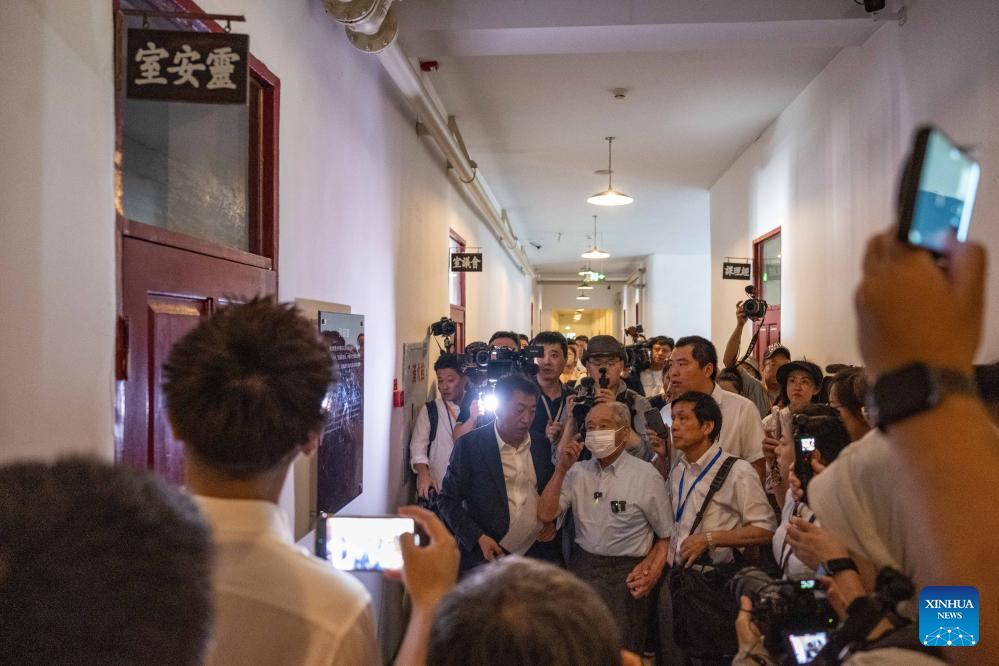
Hideo Shimizu (C) identifies the crimes of the Japanese germ-warfare at the former site of Unit 731 in Harbin, northeast China's Heilongjiang Province, Aug. 13, 2024. (Xinhua/Xie Jianfei)
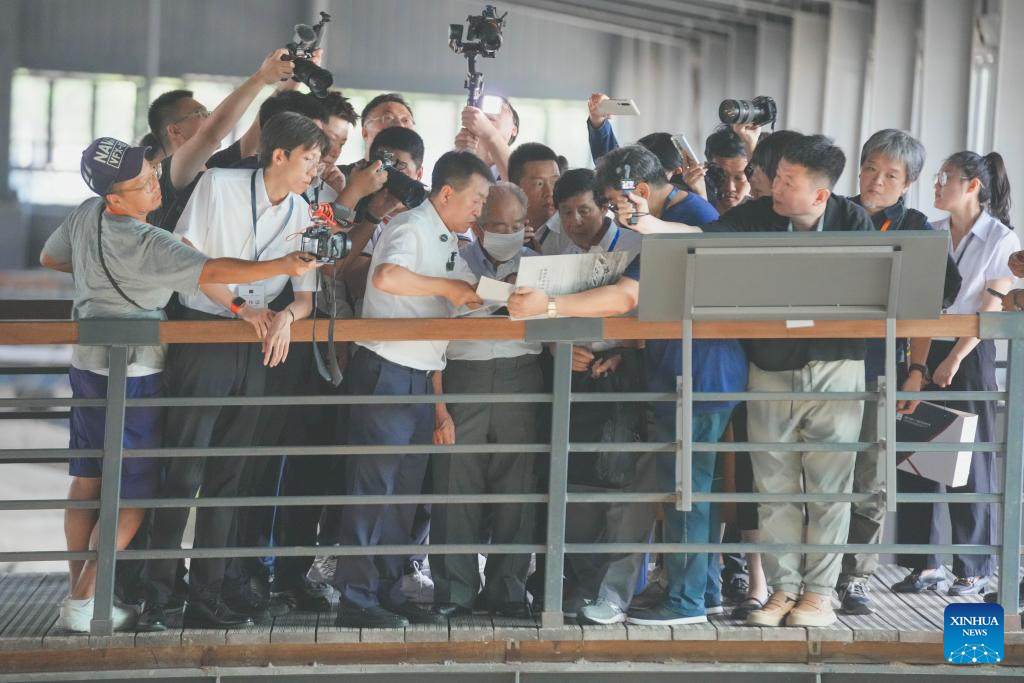
Hideo Shimizu (C) identifies the crimes of the Japanese germ-warfare at the former site of Unit 731 in Harbin, northeast China's Heilongjiang Province, Aug. 13, 2024. (Xinhua/Wang Jianwei)
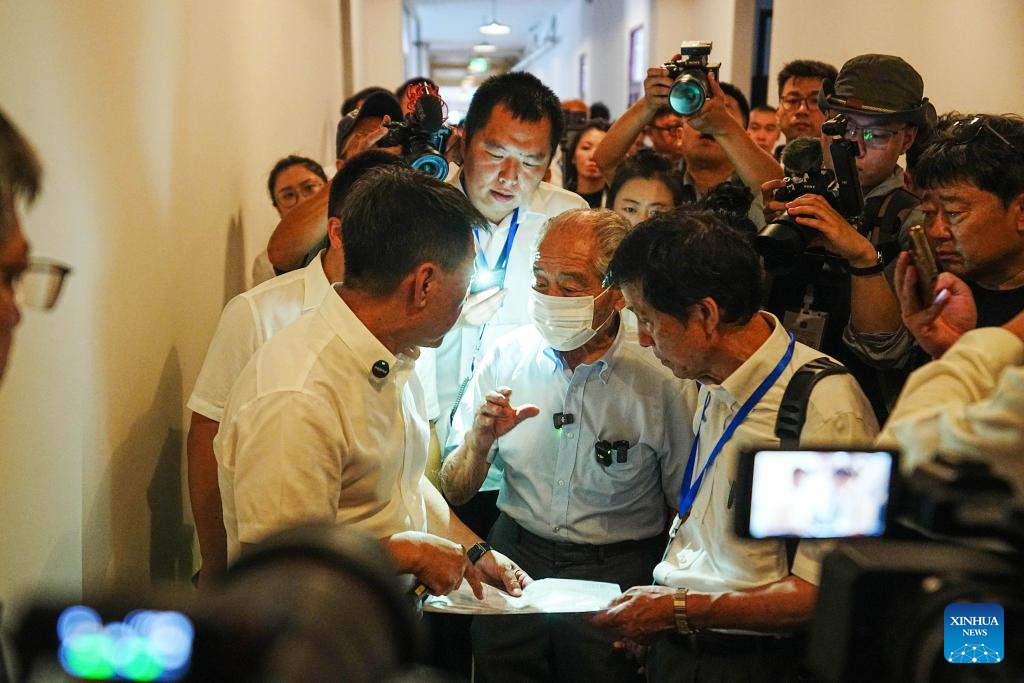
Hideo Shimizu (C) identifies the crimes of the Japanese germ-warfare at the former site of Unit 731 in Harbin, northeast China's Heilongjiang Province, Aug. 13, 2024. (Xinhua/Wang Jianwei)
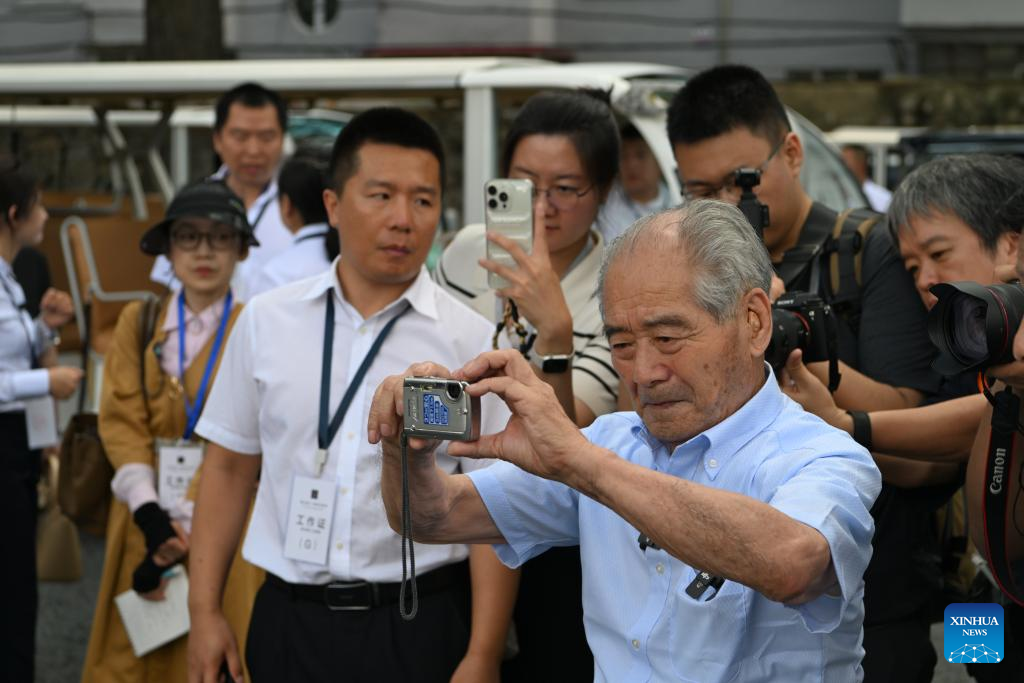
Hideo Shimizu takes pictures at the former site of Unit 731 in Harbin, northeast China's Heilongjiang Province, Aug. 13, 2024. (Xinhua/Wang Song)
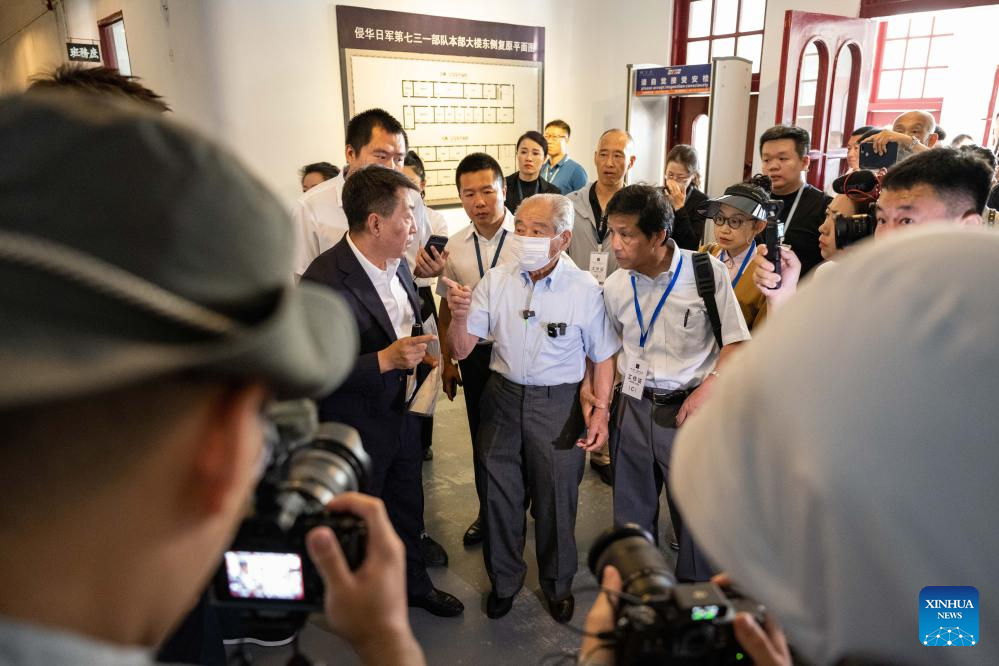
Hideo Shimizu (C) identifies the crimes of the Japanese germ-warfare at the former site of Unit 731 in Harbin, northeast China's Heilongjiang Province, Aug. 13, 2024. (Xinhua/Xie Jianfei)
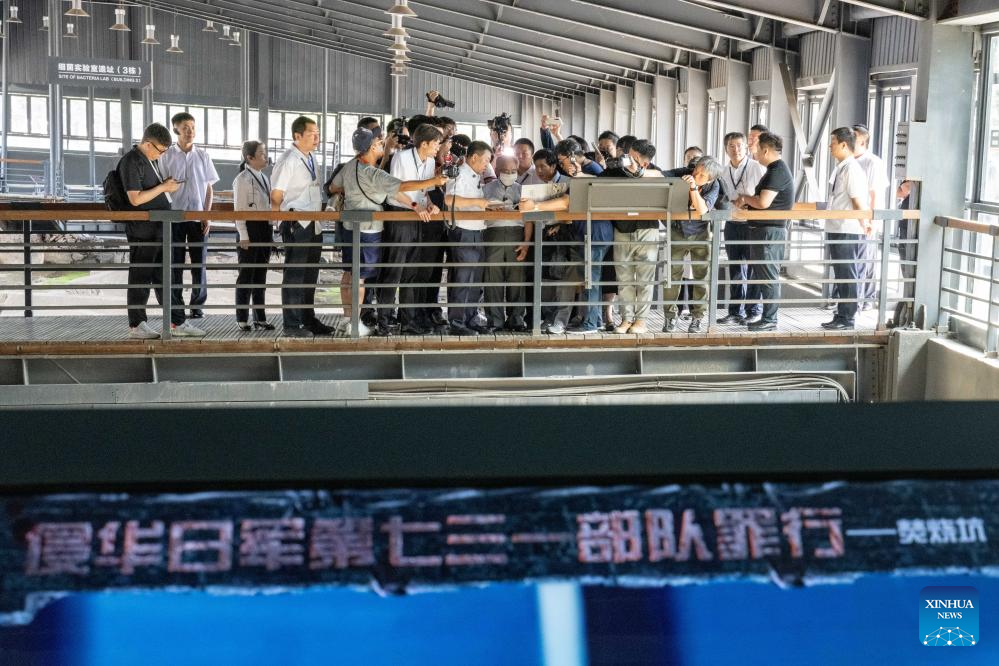
Hideo Shimizu (C) identifies the crimes of the Japanese germ-warfare at the former site of Unit 731 in Harbin, northeast China's Heilongjiang Province, Aug. 13, 2024. (Xinhua/Xie Jianfei)
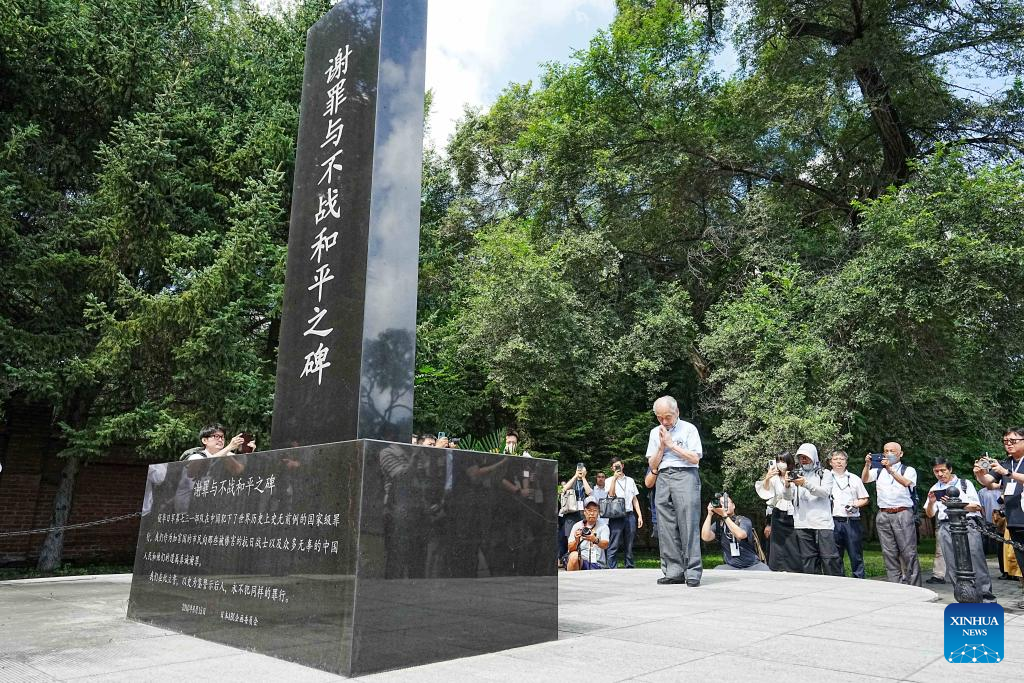
Hideo Shimizu offers apology in front of an apology and anti-war monument at the former site of Unit 731 in Harbin, northeast China's Heilongjiang Province, Aug. 13, 2024. (Xinhua/Wang Jianwei)
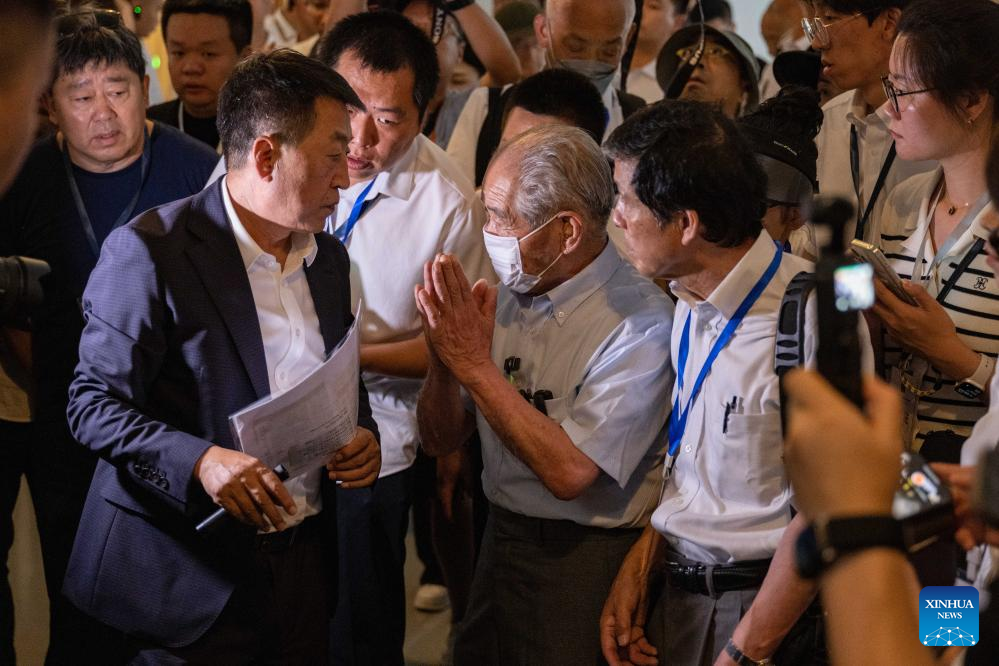
Hideo Shimizu (2nd L, front) puts his palms together as he identifies the crimes of the Japanese germ-warfare at the former site of Unit 731 in Harbin, northeast China's Heilongjiang Province, Aug. 13, 2024. (Xinhua/Xie Jianfei)
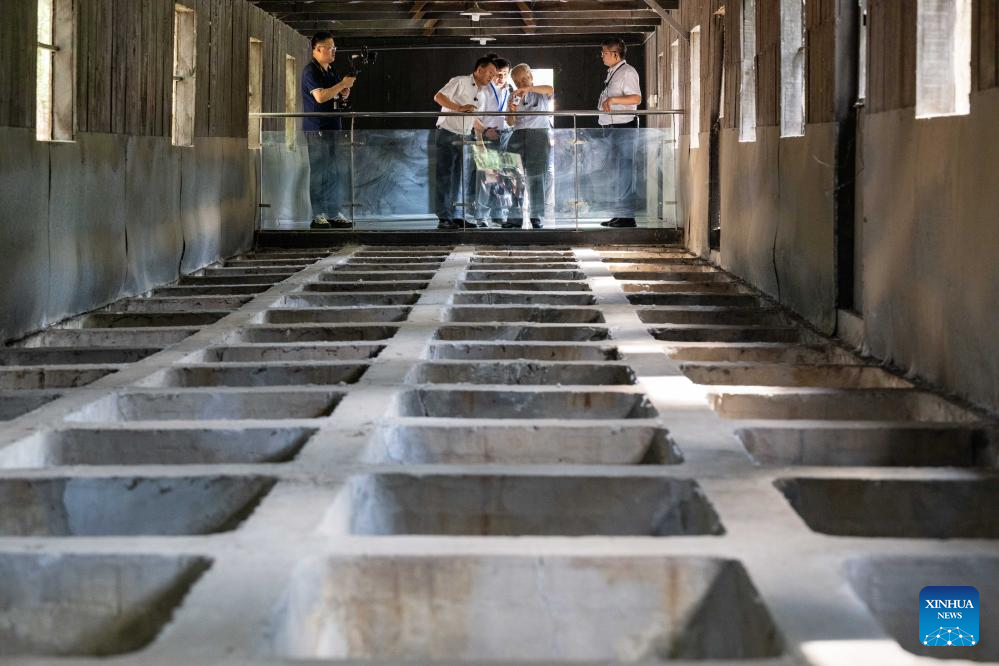
Hideo Shimizu (2nd R) takes pictures at the former site of Unit 731 in Harbin, northeast China's Heilongjiang Province, Aug. 13, 2024. (Xinhua/Xie Jianfei)
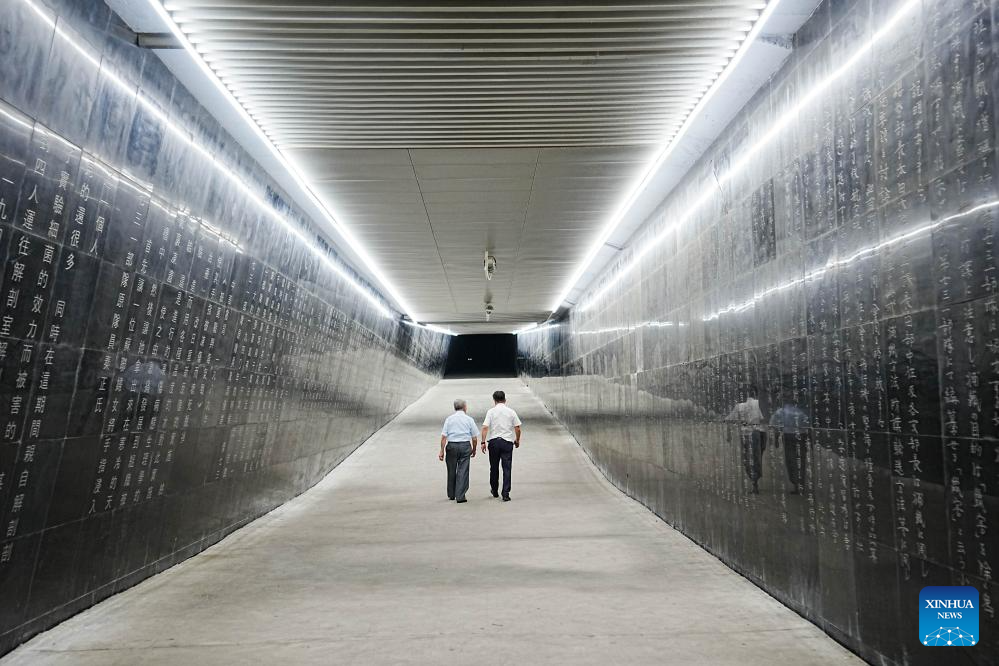
Hideo Shimizu (L) visits the Exhibition Hall of Evidences of Crime Committed by Unit 731 of the Japanese Imperial Army in Harbin, northeast China's Heilongjiang Province, Aug. 13, 2024. After a 79-year hiatus, Hideo Shimizu, a former member of Unit 731, the notorious Japanese germ-warfare detachment during World War II, returned to China to acknowledge the atrocities committed by the invading Japanese forces and to offer sincere repentance and apologies to the victims. (Xinhua/Wang Jianwei)
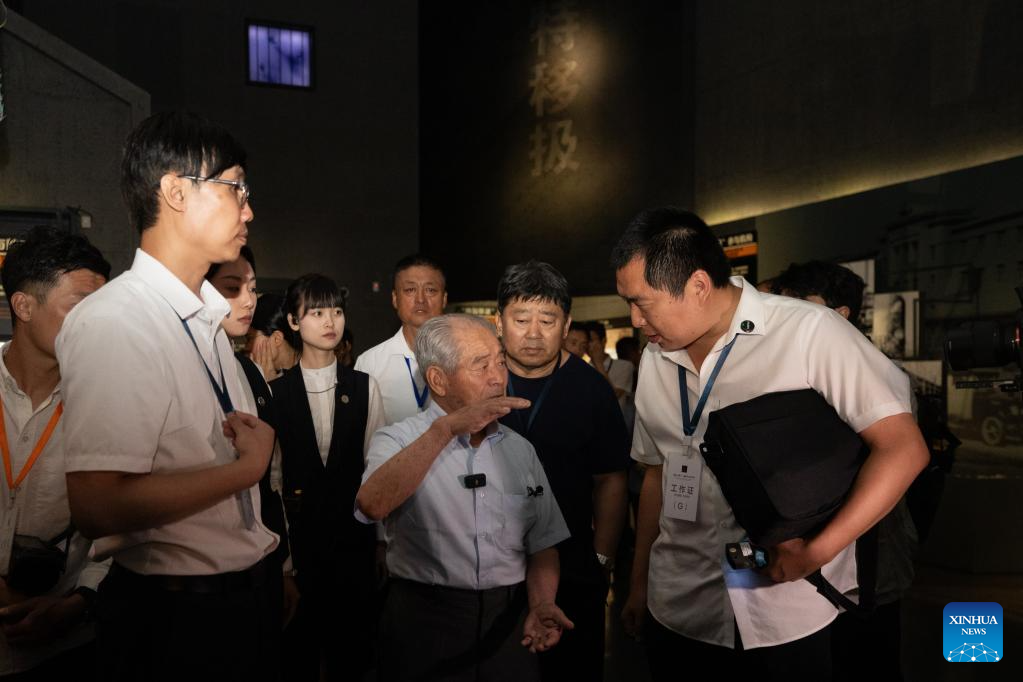
Hideo Shimizu (C, front) visits the Exhibition Hall of Evidences of Crime Committed by Unit 731 of the Japanese Imperial Army in Harbin, northeast China's Heilongjiang Province, Aug. 13, 2024. After a 79-year hiatus, Hideo Shimizu, a former member of Unit 731, the notorious Japanese germ-warfare detachment during World War II, returned to China to acknowledge the atrocities committed by the invading Japanese forces and to offer sincere repentance and apologies to the victims. (Xinhua/Zhang Tao)
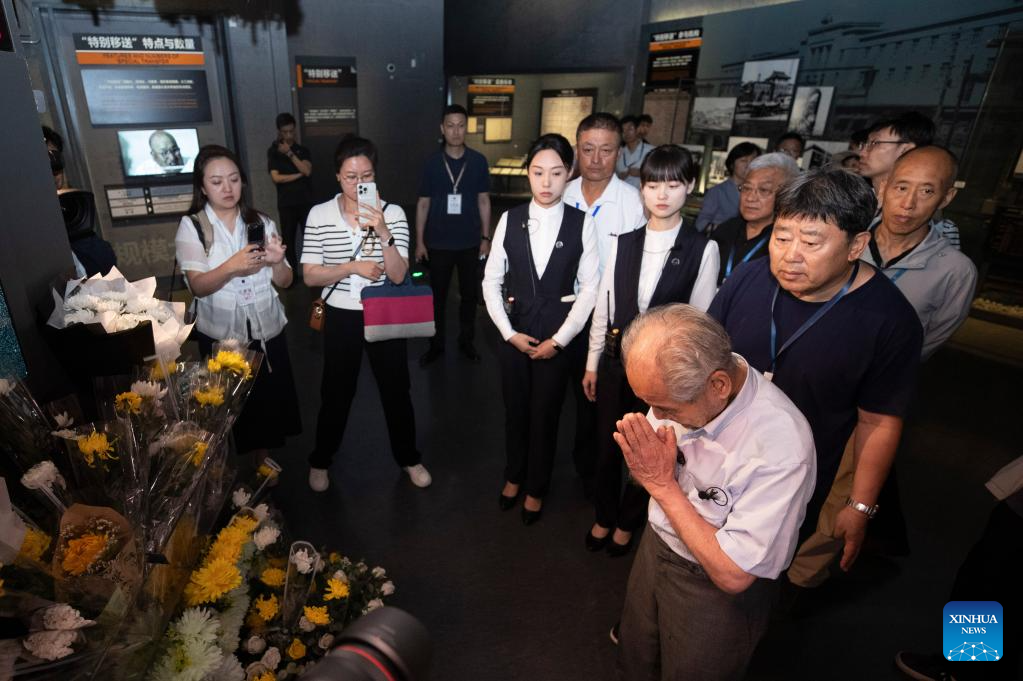
Hideo Shimizu prays in front of the list of victims at the Exhibition Hall of Evidences of Crime Committed by Unit 731 of the Japanese Imperial Army in Harbin, northeast China's Heilongjiang Province, Aug. 13, 2024. After a 79-year hiatus, Hideo Shimizu, a former member of Unit 731, the notorious Japanese germ-warfare detachment during World War II, returned to China to acknowledge the atrocities committed by the invading Japanese forces and to offer sincere repentance and apologies to the victims. (Xinhua/Zhang Tao)
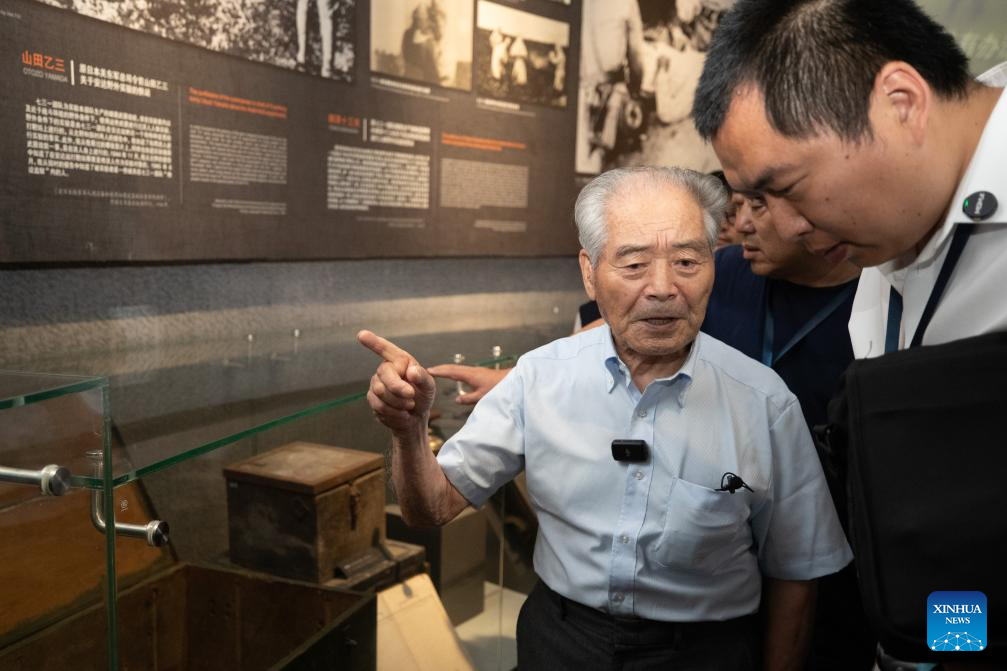
Hideo Shimizu visits the Exhibition Hall of Evidences of Crime Committed by Unit 731 of the Japanese Imperial Army in Harbin, northeast China's Heilongjiang Province, Aug. 13, 2024. After a 79-year hiatus, Hideo Shimizu, a former member of Unit 731, the notorious Japanese germ-warfare detachment during World War II, returned to China to acknowledge the atrocities committed by the invading Japanese forces and to offer sincere repentance and apologies to the victims. (Xinhua/Zhang Tao)
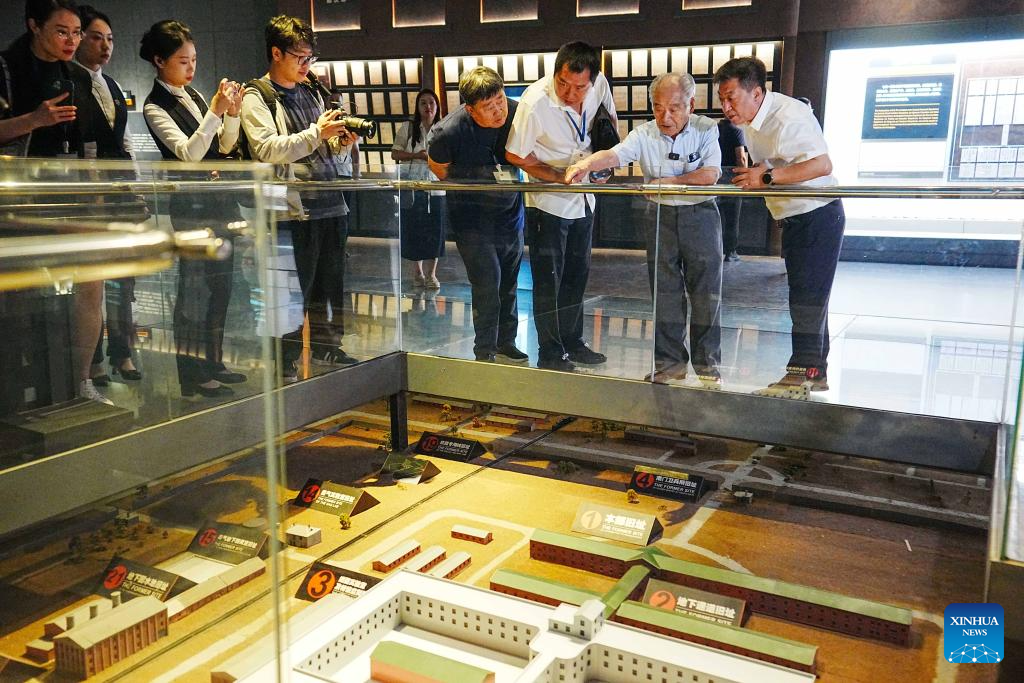
Hideo Shimizu (2nd R) visits the Exhibition Hall of Evidences of Crime Committed by Unit 731 of the Japanese Imperial Army in Harbin, northeast China's Heilongjiang Province, Aug. 13, 2024. After a 79-year hiatus, Hideo Shimizu, a former member of Unit 731, the notorious Japanese germ-warfare detachment during World War II, returned to China to acknowledge the atrocities committed by the invading Japanese forces and to offer sincere repentance and apologies to the victims. (Xinhua/Wang Jianwei)
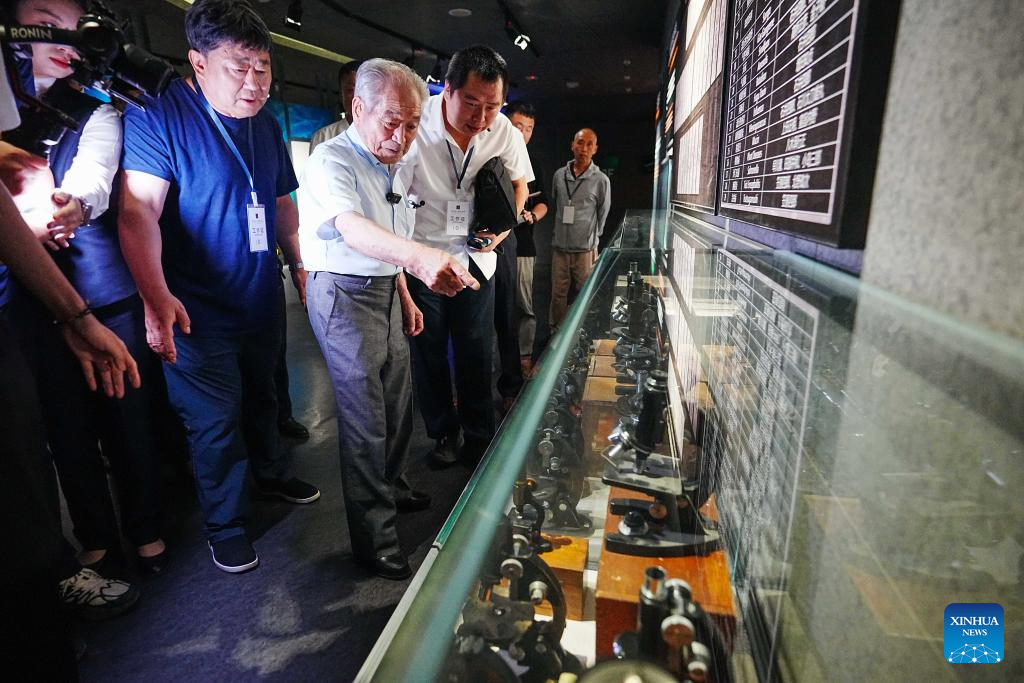
Hideo Shimizu (3rd L) visits the Exhibition Hall of Evidences of Crime Committed by Unit 731 of the Japanese Imperial Army in Harbin, northeast China's Heilongjiang Province, Aug. 13, 2024. After a 79-year hiatus, Hideo Shimizu, a former member of Unit 731, the notorious Japanese germ-warfare detachment during World War II, returned to China to acknowledge the atrocities committed by the invading Japanese forces and to offer sincere repentance and apologies to the victims. (Xinhua/Wang Jianwei)
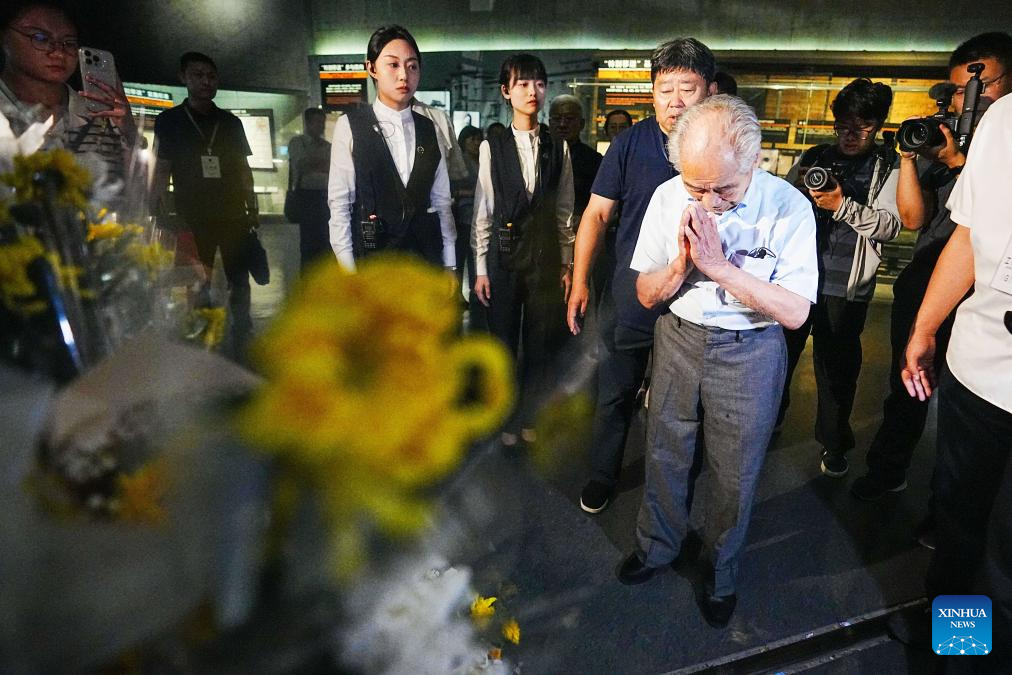
Hideo Shimizu prays in front of the list of victims at the Exhibition Hall of Evidences of Crime Committed by Unit 731 of the Japanese Imperial Army in Harbin, northeast China's Heilongjiang Province, Aug. 13, 2024. After a 79-year hiatus, Hideo Shimizu, a former member of Unit 731, the notorious Japanese germ-warfare detachment during World War II, returned to China to acknowledge the atrocities committed by the invading Japanese forces and to offer sincere repentance and apologies to the victims. (Xinhua/Wang Jianwei)
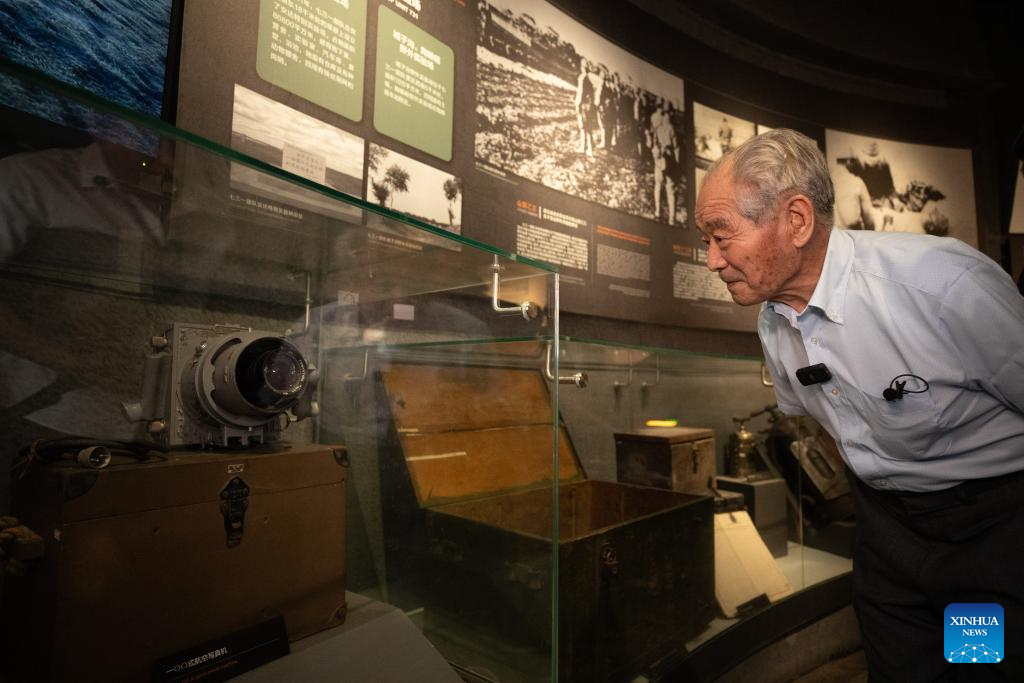
Hideo Shimizu visits the Exhibition Hall of Evidences of Crime Committed by Unit 731 of the Japanese Imperial Army in Harbin, northeast China's Heilongjiang Province, Aug. 13, 2024. After a 79-year hiatus, Hideo Shimizu, a former member of Unit 731, the notorious Japanese germ-warfare detachment during World War II, returned to China to acknowledge the atrocities committed by the invading Japanese forces and to offer sincere repentance and apologies to the victims. (Xinhua/Zhang Tao)
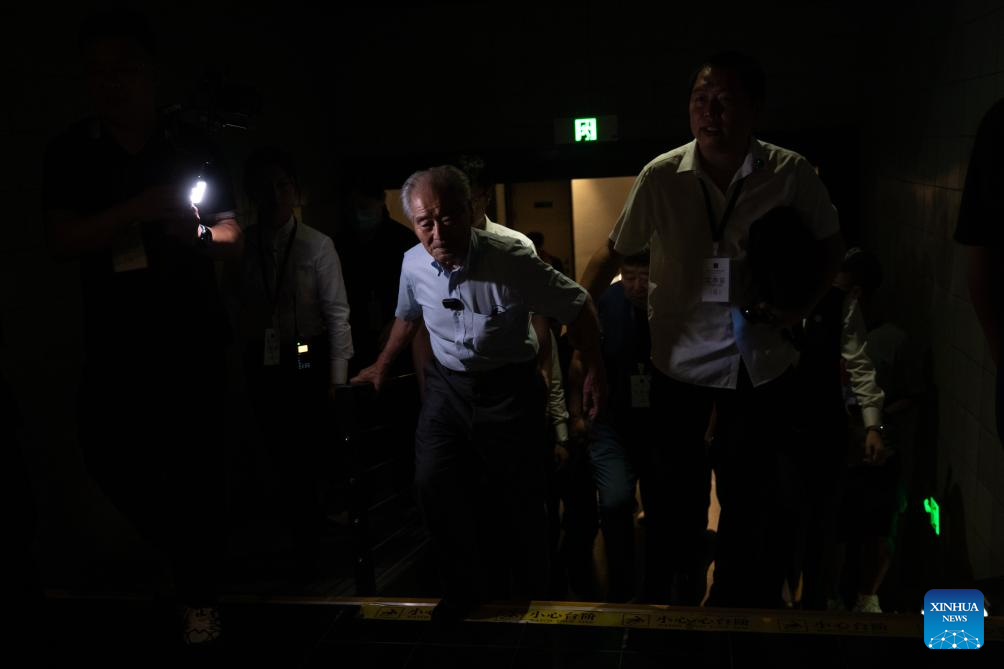
Hideo Shimizu (2nd R) visits the Exhibition Hall of Evidences of Crime Committed by Unit 731 of the Japanese Imperial Army in Harbin, northeast China's Heilongjiang Province, Aug. 13, 2024. After a 79-year hiatus, Hideo Shimizu, a former member of Unit 731, the notorious Japanese germ-warfare detachment during World War II, returned to China to acknowledge the atrocities committed by the invading Japanese forces and to offer sincere repentance and apologies to the victims. (Xinhua/Zhang Tao)
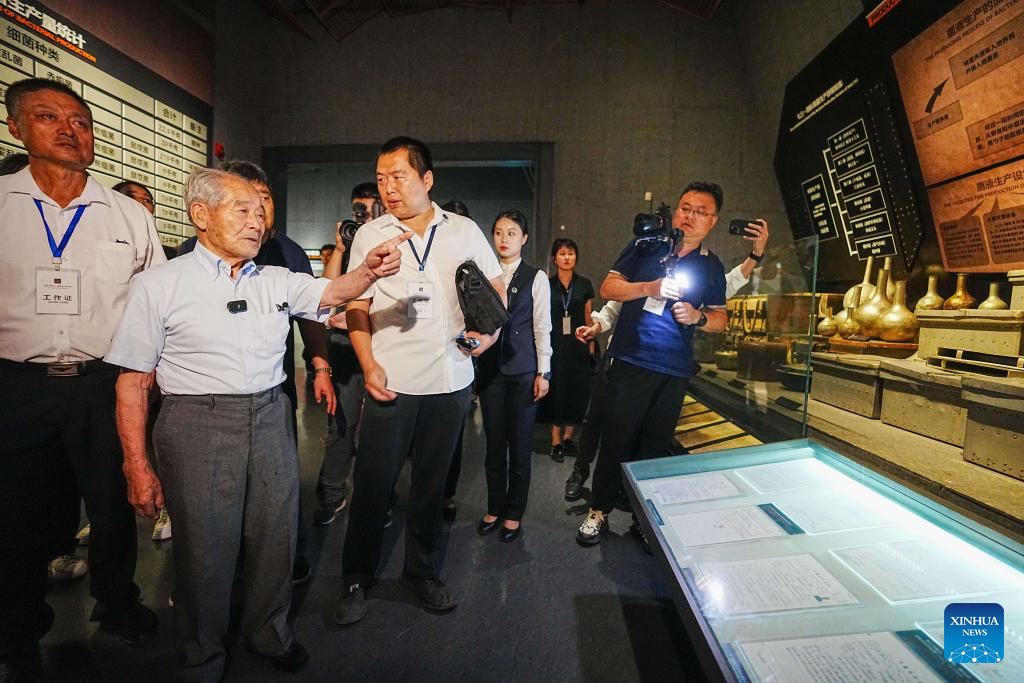
Hideo Shimizu (2nd L, front) visits the Exhibition Hall of Evidences of Crime Committed by Unit 731 of the Japanese Imperial Army in Harbin, northeast China's Heilongjiang Province, Aug. 13, 2024. After a 79-year hiatus, Hideo Shimizu, a former member of Unit 731, the notorious Japanese germ-warfare detachment during World War II, returned to China to acknowledge the atrocities committed by the invading Japanese forces and to offer sincere repentance and apologies to the victims. (Xinhua/Wang Jianwei)
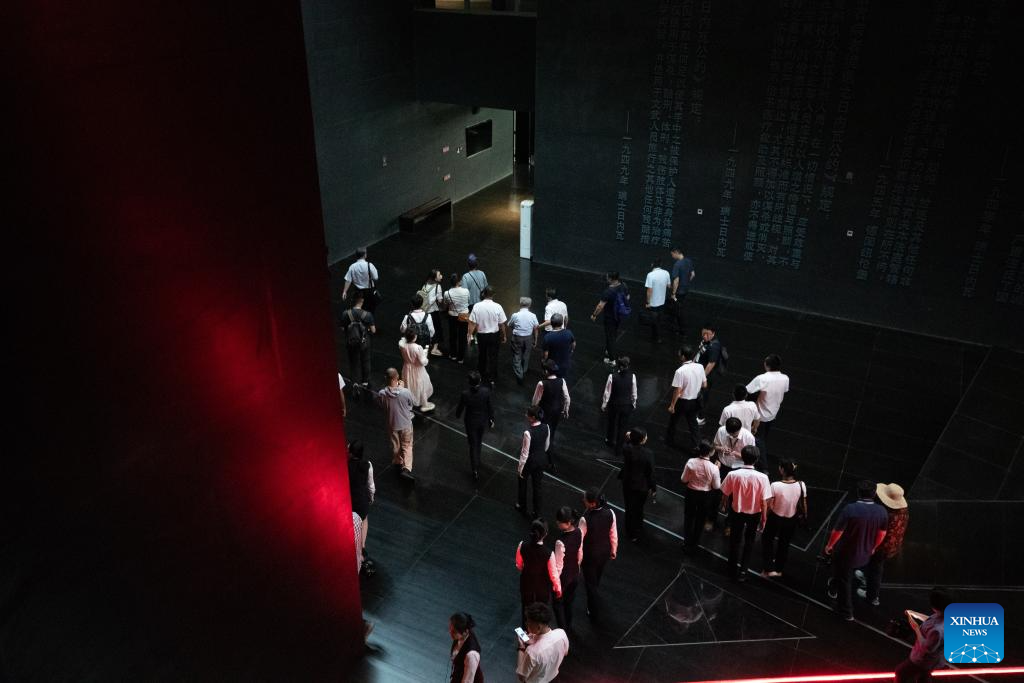
Hideo Shimizu leaves the Exhibition Hall of Evidences of Crime Committed by Unit 731 of the Japanese Imperial Army in Harbin, northeast China's Heilongjiang Province, Aug. 13, 2024. After a 79-year hiatus, Hideo Shimizu, a former member of Unit 731, the notorious Japanese germ-warfare detachment during World War II, returned to China to acknowledge the atrocities committed by the invading Japanese forces and to offer sincere repentance and apologies to the victims. (Xinhua/Zhang Tao)
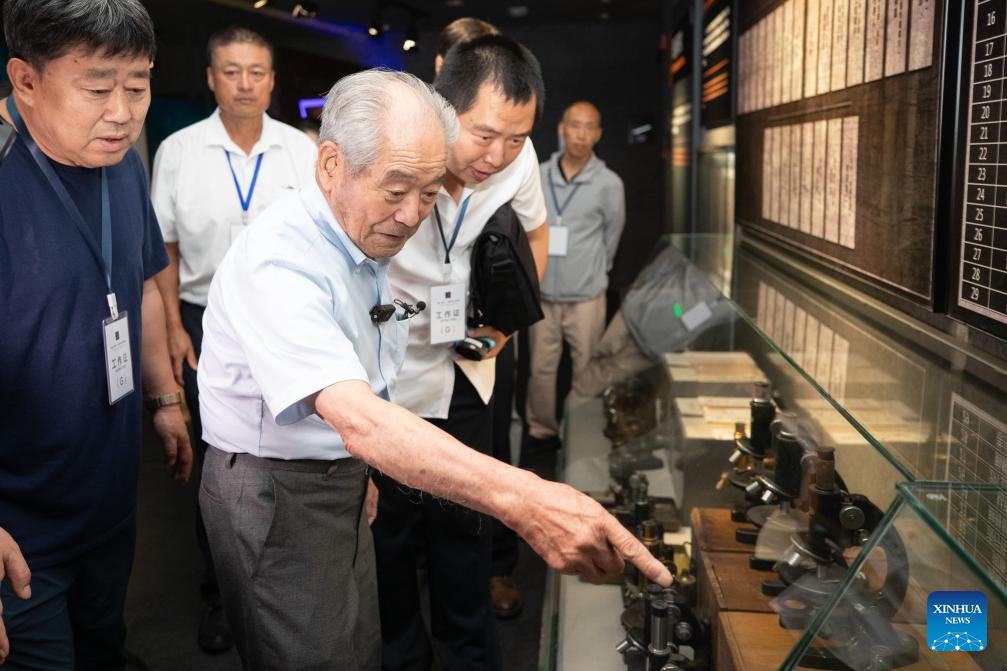
Hideo Shimizu visits the Exhibition Hall of Evidences of Crime Committed by Unit 731 of the Japanese Imperial Army in Harbin, northeast China's Heilongjiang Province, Aug. 13, 2024. After a 79-year hiatus, Hideo Shimizu, a former member of Unit 731, the notorious Japanese germ-warfare detachment during World War II, returned to China to acknowledge the atrocities committed by the invading Japanese forces and to offer sincere repentance and apologies to the victims. (Xinhua/Zhang Tao)



